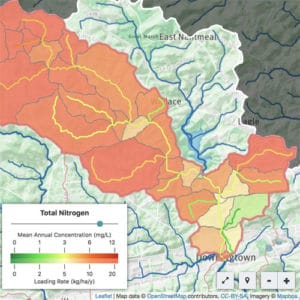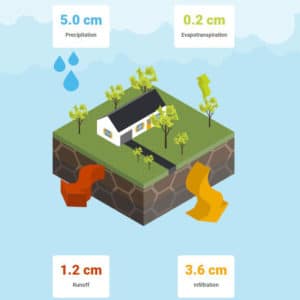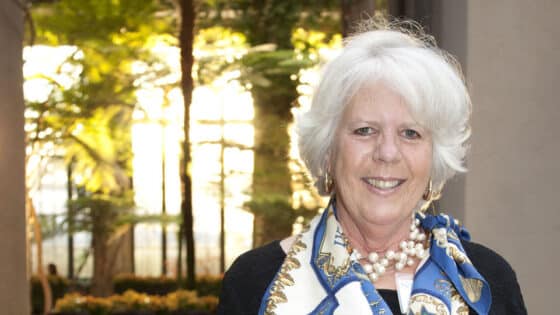
WikiWatershed, a web toolkit designed by Stroud Water Research Center and partners to help users advance knowledge and stewardship of freshwater, and its flagship tool, Model My Watershed®, have received another award: the Sustainable Business Network (SBN) of Greater Philadelphia’s Excellence in Green Stormwater Infrastructure (GSI) Award for Technological Innovation.
The Excellence in GSI Award recognizes work in the Greater Philadelphia region celebrating a nature-based approach to stormwater management.
“WikiWatershed exemplifies the role innovation and technology play in the fight to protect our waterways. By helping the GSI industry more effectively dispatch BMPs, WikiWatershed is playing a role in bringing about the triple-bottom-line benefits — environmental, social, and economic —of a growing GSI industry,” said Fran Lawn, manager of the Sustainable Business Network’s GSI Partners.
SBN presented the award to the Stroud Center’s Assistant Director Scott Ensign and Education Director Steve Kerlin and to Azavea’s President and CEO Robert Cheetham and Software Engineer Terence Tuhinanshu at the fourth annual award ceremony on Thursday, May 23. Additional partners on the project include LimnoTech, Pennsylvania State University, Utah State University, Academy of Natural Sciences of Drexel University, and University of Washington.
Model My Watershed is a free and easy-to-use, professional-grade watershed modeling software application that runs in a web browser. It enables its users — citizens, conservation practitioners, municipal decision-makers, researchers, educators, and students — to learn more about the impact of potential land use changes in their neighborhoods and watersheds.

Users are able to select a geographic area, analyze real land use and soil data, model stormwater runoff and water-quality impacts, and compare how different conservation or development scenarios can modify runoff and improve water quality for everyone. An animated version of the modeling tool, a runoff simulation, enables users to better understand how land use and soil collectively determine rainfall infiltration, evaporation, and plant transpiration rates.
WikiWatershed was also awarded the 2017 Governor’s Award for Environmental Excellence by the Pennsylvania Department of Environmental Protection and was named by The Global Grid one of the Top 20 Civic Tech Websites for Urban Planners and City Makers of 2018.
Model My Watershed was the 2018 winner of Amazon’s City on a Cloud Innovation Challenge and featured in a video in the NSF-funded 2018 STEM for All Video Showcase: Transforming the Educational Landscape. It has been recognized by the Community for Advancing Discovery Research in Education (CADRE) as an important tool for science education.
WikiWatershed has been funded by: National Science Foundation (grants DRL #1417527, DRL #0929763 and DRL #1418133) ~ William Penn Foundation (grants 103-14 and 12-17) ~ Stroud Water Research Center ~ Virginia Wellington Cabot Foundation ~ The Dansko Foundation ~ Generous donations from Peter Kjellerup and Mandy Cabot
Contact: Diane Huskinson.
About Stroud Water Research Center
Stroud Water Research Center advances knowledge and stewardship of freshwater systems through global research, education, and watershed restoration and to help businesses, landowners, policymakers, and individuals make informed decisions that affect water quality and availability around the world. Stroud Water Research Center is an independent, 501(c)(3) not-for-profit organization.



